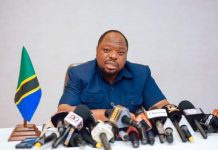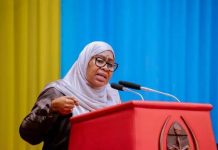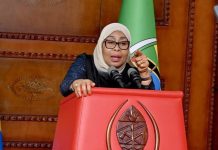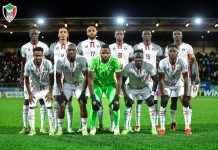Africa-Press – Tanzania. THE African Court on Human and Peoples’ Rights has organised a three-day special training to create a robust pool of journalists and editors across the continent that will be knowledge-based, positive and constructive in sensitising and increasing awareness of work at the court.
The trained journalists will also serve as Training of Train- ers (TOT) and where possible, for outreach activities in their respective areas and would also exert pressure on the States as they pro-actively push for implementation of the court’s judgments.
The Court’s Registrar, Dr Robert Eno, stated in the Concept Note released yesterday that the ultimate aim of the training is to create a pool of vibrant and pro-active journalists, who are knowledgeable about the work of the court and report accurately its activities on a regular basis.
It is stated that the training scheduled to be held in Dar es Salaam from October 28, 2021 will bring together 30 senior ed- itors and journalists from across the African continent.
Since the establishment of the Organisation of the African Unity (OAU), now the African Union (AU), the African continent has seen creation of several human rights bodies not only at the sub-regional levels but also at the continental level.
At the international level, the AU boasts of at least three human rights organs with exclusively human rights mandates, which includes the Court, Com- mission and Committee on the protection of human rights.
Since the adoption of the Protocol to the African Charter on Human and Peoples’ Rights on the Establishment of an African Court on Human and Peo- ples’ Rights (the Protocol), only 31 out of the 55 African Union Member States have ratified the Protocol.
The Registrar of the conti- nental court states in the Concept Note that the challenges facing the court include low level of compliance with court decisions; pushback and resistance from the Member States and lack of awareness on the Court, among others.
Most, if not all of these challenges, according to Dr Eno, are due in part because of lack of awareness about the op- erations of the court by the various stakeholders, including the member states.
It was his view that the training would enhance professional skills on how to report African Court activities for improved coverage, public aware- ness and understanding and bolster a pool of journalists to be called “Media Champions of the AfCHPR.’’
He stated further that the training would raise awareness, create and improve a better understanding of the court to the public and encourage ratifica- tions and declarations and act as a pressure group on implemen- tation of court judgments.
According to Dr Eno, the training would also help build a network of professional journal- ists that promotes the exchange of experience, better quality of work and the development of senior journalists, who can act as future mentors for young journalists interested in the work of the Court and human rights.







